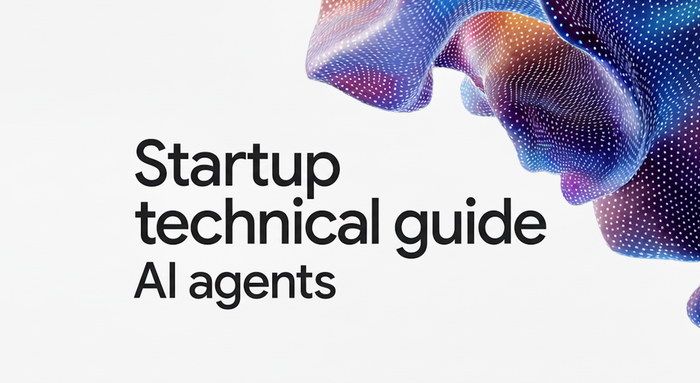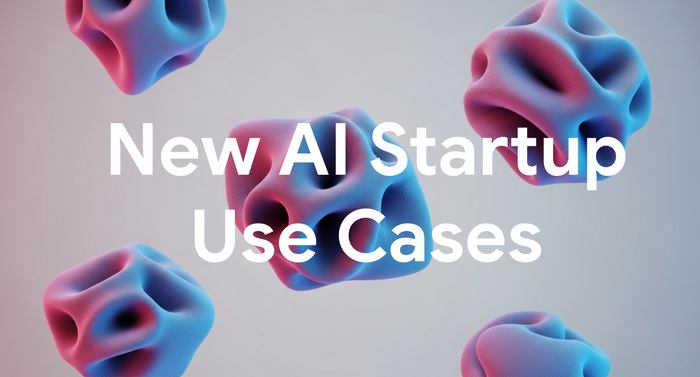Black History Month: Celebrating the success of Black founders with Google Cloud: TQIntelligence

Yared Alemu, Ph.D.
Founder TQIntelligence
February is Black History Month—a time for us to come together to celebrate and remember the important people and history of the African heritage. Over the next four weeks, we will highlight four Black-led startups and how they use Google Cloud to grow their businesses. Our first feature highlights TQIntelligence and its founder, Yared.
As a psychologist, administrator, educator, and researcher, I’ve always wondered how we could use data to better serve children and adolescents who are being treated for trauma-related mental health disorders. Inspired by 20 years of experience focusing on poverty and trauma, I sought to rethink mental health services in low-income communities. This inspired me to found my startup TQIntelligence, which uses artificial intelligence and voice recognition technology to enable therapists to make more accurate diagnoses faster.
Poverty and trauma—A double whammy for low-income communities
Poverty and trauma are twofold blows. They go hand in hand, and quite often, one compounds the other. Children and adolescents in marginalized communities are at the highest risk for Adverse Childhood Experiences (ACE): traumatic events in childhood like abuse, neglect or violence, which lead to severe mental health disorders. These disorders impact children’s ability to learn and function on par with their peers. Severe ACEs can lead to mental impairments and an increased risk for suicide, and may inflict long-term adverse effects on children’s health and well-being into adulthood.
Furthermore, a lack of quality health care exacerbates the trauma that low-income communities face, despite more than $500 billion in funding—the equivalent of nearly 4% of GDP per year on Medicare/Medicaid, Child Protective Services, and legal fees. This occurs primarily because therapists in low-income communities tend to be the least experienced in treating the most severe youth. Addressing these disparities in treatment outcomes requires innovation in the assessment and measurement of mental health disorder severity.


TQIntelligence—Adding intelligence to mental healthcare with Clarity AI
At TQIntelligence, our goal is to enable therapists serving at-risk youth to make more accurate diagnoses, faster. Our proprietary Clarity AI technology uses scientifically-validated diagnostic tools, Artificial Intelligence, and voice recognition technology to bring a data-driven approach that has long been standard in physical medical practices to the mental health arena. Similar to other medical practices, where the diagnosis is based on a variety of tests and calibrations such as blood tests, x-rays, or MRIs to gain a holistic understanding of a patient's problem, Clarity AI uses the science of Speech Emotion Recognition (SER) and AI to identify trauma biomarkers in a patient’s voice. These technologies give therapists the tools they need to better support and provide services to children and adolescents from low-income families.
Google for Startups: Black Founders Fund—Google Cloud technology transforming behavioral health care
TQIntelligence relies on data and Cloud technology to drive accurate mental health diagnostics. Google has provided us with a wealth of resources and products to help us along this journey. Our Clarity AI tool utilizes Google’s Cloud Healthcare API, supporting HIPAA compliance and ensuring the safety of patient data. Google Cloud allowed us to collaborate with their voice analytics team, including giving access to Cloud AutoML tools to advance our speech emotion recognition technology. Once fully developed, this algorithm will help us identify a patient’s level of emotional distress and help therapists establish the patient's baseline and track patient progress over time, monitoring for improvement, stagnation, or deterioration.
So far, we have successfully collected and analyzed more than 800 voice samples as part of our ML model training. These audio clips go through a manual voice labeling process by four mental health professionals since there is no open-source youth clinical voice sample to help us train our model. With the help from Google Cloud, we have been able to scale our data collection process while providing data-driven solutions to our pilot site collaborators.
We also leverage Cloud Functions, Firebase and Cloud SQL to create a highly scalable serverless application. Firebase offers seamless integration of data collected to our smartphone applications. The data to be used for our machine learning model training is collected on the mobile platforms and then moved into Cloud Storage using Cloud Functions for storing in buckets. Cloud Functions also is used to retrieve data in the web portal. The tabular data is then stored as databases in Cloud SQL.


Black-led startups—Innovating for the future
Over the past year, there has been lot of noise surrounding the topic of social justice. I see many organizations using current conversations as a branding gimmick without any quantifiable commitment; others only offer reactionary or temporary responses. By showing up and putting their money where their mouth is, Google is leading the way for corporations, investors, and foundations looking for ways to start to address the dismal gap in funding for BIPOC and women founders. Google is empowering underrepresented founders like myself. For us, that came through our participation in the Google for Startups Founders Academy (apply here by February 9th!) and the Google for Startups Accelerator: Black Founders. These programs connected us to industry leaders and subject matter experts—relationships that converted into progress, and have proven to be a tremendous advantage in a space where Black-led startups have been excluded from developing AI technology.
Receiving $100K in non-dilutive capital from the Google for Startups: Black Founders Fund truly changed the game for us. In addition to financial support, the Black Founders Fund provided us with product support, including 1:1 mentorship from Google Cloud’s engineering team as well as access to Google Cloud credits. Furthermore, we were able to secure an additional $1 million grant from the National Science Foundation. But most importantly, it is fostering meaningful change toward equitable funding.
Despite being one of the fastest-growing groups of entrepreneurs, Black founders receive less than 1% of venture capital in the U.S. Excluding founders of color from access to funding isn’t just bad business; it reflects the legacy of white supremacy and racism in this country. At this pivotal point in our country’s history, we need more investors and decision-makers recognizing that diversity drives innovation. Part of this change requires organizations fearlessly and courageously examine their role in perpetuating the legacy of white supremacy, followed by intentional and well-thought actions on how they can contribute to social equity. As someone who grew up with limited resources, I know firsthand the consequences of scarcity to individuals’ emotional, psychological and spiritual development. Founders of color like me are the most appropriate change agents to address the ills of poverty and the psychological impact of scarcity.
Going forward, the TQIntelligence team will continue our work with low-income communities and strive to help therapists in these communities make the most of their limited resources to provide effective psychotherapeutic intervention; effective therapy has the most significant impact on future generations. With the support of Google for Startups Black Founders Fund and our mentors at Google—such as Josh Belanich, Jason Scott, Jewel Burks Solomon, and many others—we've been able to positively impact the lives of young people from low-income communities. I look forward to continuing this journey with the Google team and changing the world for the better, one diagnosis at a time!
If you want to learn more about how Google Cloud can help your startup, visit our startup page here and sign up for our monthly startup newsletter to get a peek at our community activities, digital events, special offers, and more.




